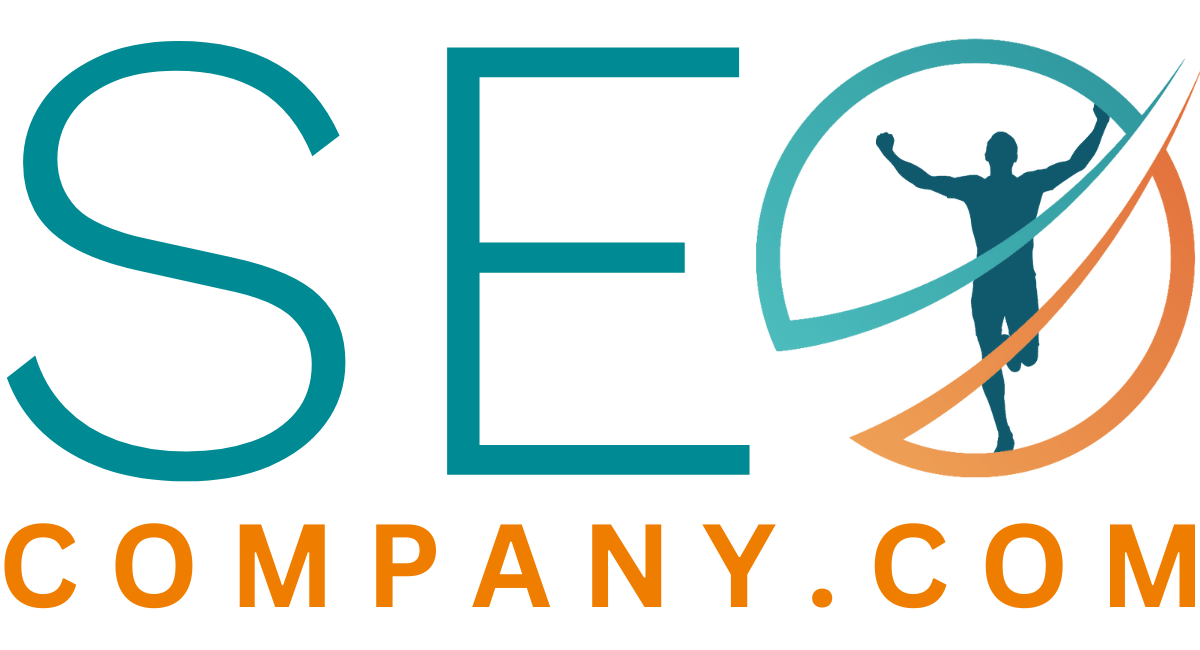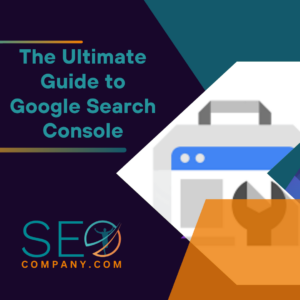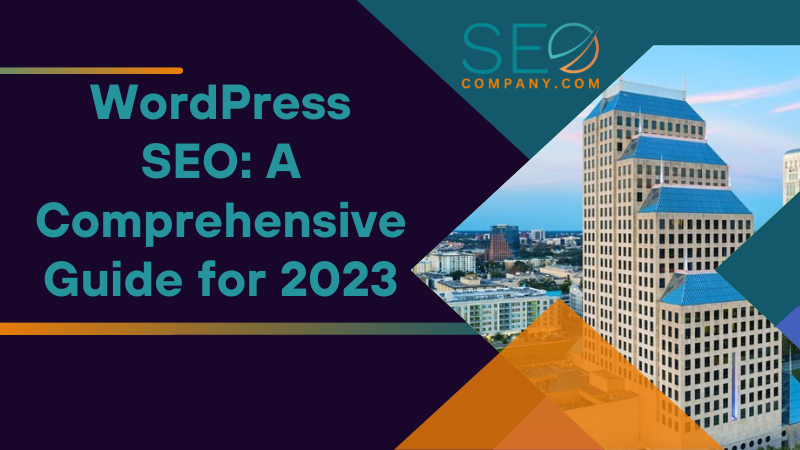
As we enter 2023, the digital landscape continues to evolve, and the importance of search engine optimization (SEO) remains paramount for website owners. With WordPress powering over 40% of all websites, understanding and implementing the latest WordPress SEO techniques is crucial to stay ahead of the competition. So, are you ready to unlock the full potential of your WordPress site and drive organic traffic like never before? Let’s dive into this comprehensive guide covering all WordPress SEO aspects for 2023.
Points to Understand
- WordPress SEO is the process of optimizing a website to increase visibility on search engine results pages.
- Setting up your WordPress site for success includes selecting a quality hosting provider, an SEO-friendly theme, and configuring relevant settings.
- Utilizing plugins and tools such as Yoast SEO can help optimize content, while off page optimization strategies like link building and social media marketing are essential for increasing organic traffic.
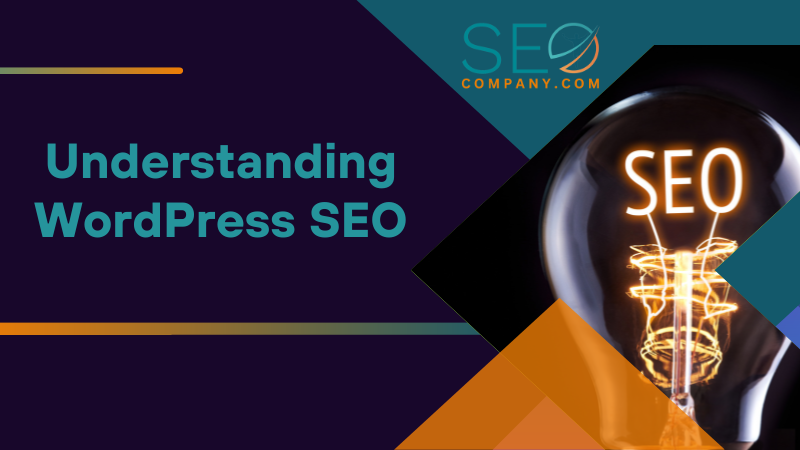
Understanding WordPress SEO
In the vast world of online search, having a well-optimized WordPress site is the key to attracting the right audience and increasing your website’s visibility. As a website owner, search engine optimization, or SEO, makes your website more appealing to search engines like Google, leading to higher rankings on search engine results pages (SERPs) and more organic traffic.
SEO involves a variety of techniques, such as optimizing content, improving page speed, and building content.
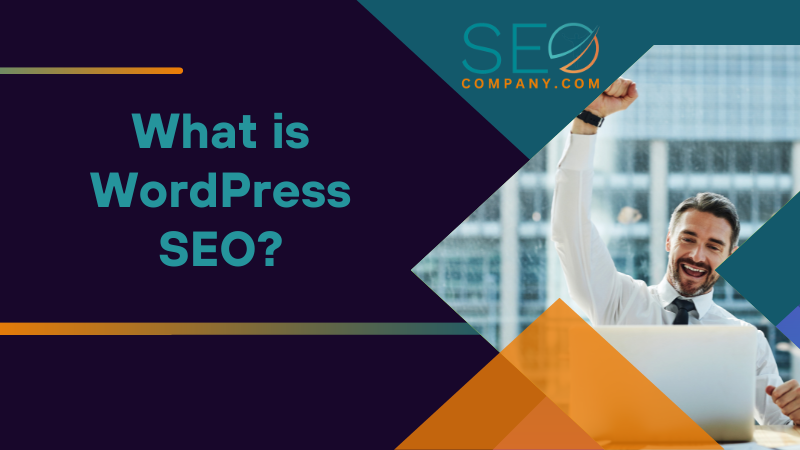
What is WordPress SEO?
At its core, WordPress SEO is all about optimizing your website content and structure to rank higher on search engine results pages (SERPs). This includes utilizing the best WordPress SEO plugins, configuring your site’s settings, and implementing various on-page and off-page optimization techniques. When done correctly, your website will be more visible to search engines, making it easier for users to find your content.
An essential aspect of WordPress SEO is ensuring that your website is built with clean code and optimized for search engines. One popular plugin that can help you achieve this is Yoast SEO. This plugin provides features and SEO tools to optimize your website for Google and other search engines. With an SEO-friendly theme and proper configuration, your WordPress site can become more appealing to search engines, leading to increased visibility and organic traffic.
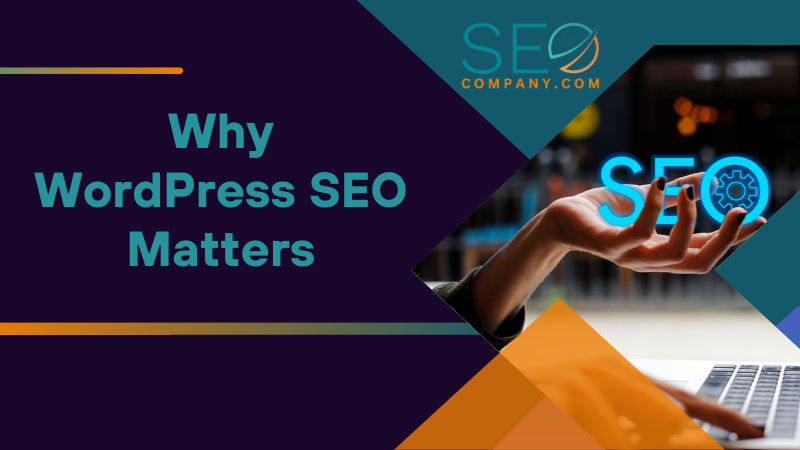
Why WordPress SEO Matters
WordPress SEO matters because it directly impacts your website’s visibility, credibility, and conversion rates. When your website ranks higher in search engine results, users are more likely to click on your site, leading to increased organic traffic and potential business growth.
In addition, a well-optimized website demonstrates professionalism and expertise, which in turn builds credibility among users. One essential aspect of WordPress SEO is creating and optimizing meta titles and descriptions. These HTML elements concisely summarize your page’s content and are visible on search engine results pages (SERPs). By crafting compelling meta titles and descriptions, you can entice users to click on your website, leading to higher click-through rates and improved SEO performance.
Furthermore, ensuring your website’s security and speed enhances the user experience, which search engines like Google value when determining rankings.

Setting Up Your WordPress Site for SEO Success
As the foundation of your online presence, it’s crucial to set up your WordPress site for SEO success correctly. By configuring the essential settings and utilizing a few straightforward strategies, you can create a robust base to develop from.
This section will discuss the importance of choosing a quality hosting provider, selecting an SEO-friendly theme, and configuring WordPress settings for search engine optimization.

Choosing a Quality Hosting Provider
When it comes to WordPress SEO, choosing a reliable hosting provider is crucial. A quality hosting provider ensures that your website has optimal site speed, uptime, and security, which directly impacts your SEO performance. A slow-loading website can deter users from staying on your site, leading to higher bounce rates and lower search engine rankings.
To select the best hosting provider for your WordPress website, consider site speed, uptime, and security factors. Doing so can ensure that your website is built on a strong foundation, providing an excellent user experience and improving your chances of ranking higher in search engine results.
Selecting an SEO-Friendly Theme
Another critical aspect of setting up your WordPress site for SEO success is selecting an SEO-friendly theme. A well-structured theme with clean code makes your website more visually appealing and ensures better search engine visibility. This is because search engines have an easier time crawling and indexing your site when the underlying code is clean and well-organized.
When choosing a theme for your WordPress website, look for one that is designed with SEO in mind. This includes features such as proper heading tags, mobile responsiveness, and fast-loading times. By selecting an SEO-friendly theme from the available WordPress themes, you can create a strong foundation for your website’s search engine optimization efforts, ultimately leading to higher search engine rankings and increased organic traffic.
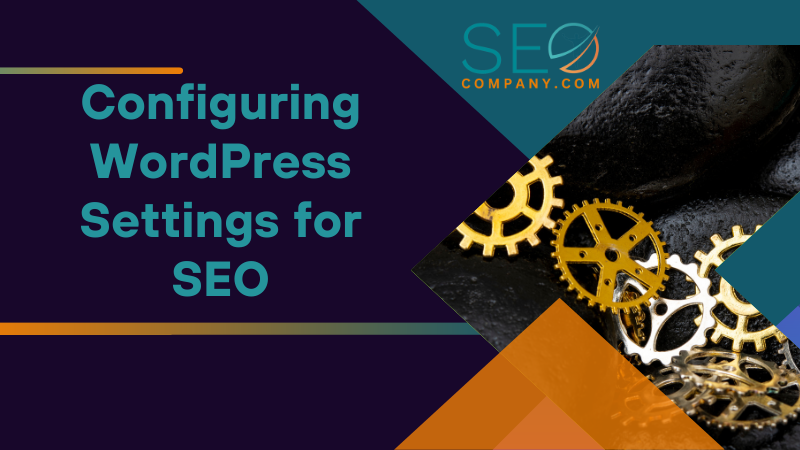
Configuring WordPress Settings for SEO
Properly configuring your WordPress site is essential for ensuring its visibility on search engines. This includes settings such as permalinks and site visibility. By default, WordPress uses a date-based permalink structure, which is not the most SEO-friendly option. Instead, the “Post name” structure is recommended, creating URLs that appear as example.com/post-name/ or example.com/category/post-name/.
In addition to configuring the permalink structure, verifying your WordPress site’s visibility settings is crucial. By default, WordPress allows search engines to index your site, but if you accidentally discourage search engines from indexing your site, it can negatively impact your SEO efforts. To verify your site’s visibility settings, navigate to Settings > Reading in your WordPress dashboard and ensure that the “Discourage search engines from indexing this site” option is unchecked.
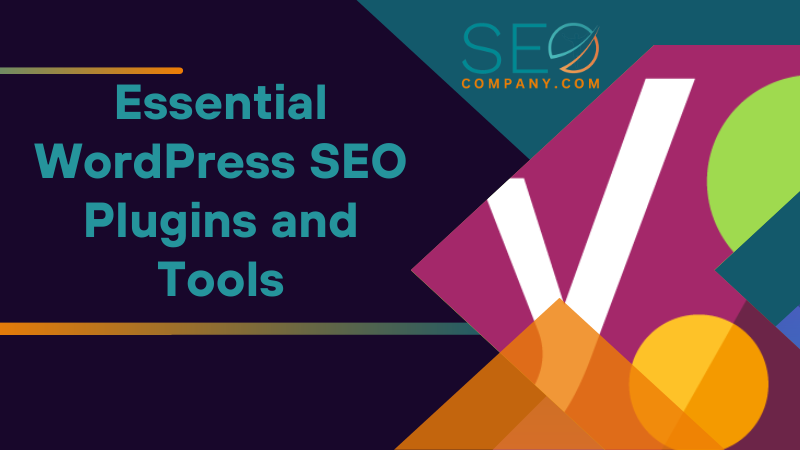
Essential WordPress SEO Plugins and Tools
Utilizing the right plugins and tools is essential to take your WordPress SEO efforts to the next level. This section will discuss the importance of popular WordPress SEO plugins, such as Yoast SEO and All-in-One SEO Pack.
These plugins can help you optimize your content for search engines, create XML sitemaps, and more. Integrating Google Analytics and Search Console with your WordPress site can provide valuable information.
Yoast SEO
The Yoast SEO plugin is a popular WordPress SEO plugin that offers comprehensive on-page optimization features and tools. This plugin allows you to easily optimize your website’s meta titles, descriptions, and content for your target keywords. Yoast SEO also helps you create an XML sitemap, making it easier for search engines to crawl and index your content.
Yoast SEO also provides valuable recommendations to improve your site’s overall SEO performance besides its on-page optimization features. Some of these recommendations include:
- Analyzing your site’s content and providing suggestions for improving readability
- Providing suggestions for keyword usage to improve search engine visibility
- Offering recommendations for internal linking to improve site navigation and user experience
By utilizing Yoast SEO, you can ensure your website is fully optimized for search engines and users.
All-in-One SEO Pack
Another powerful SEO plugin for WordPress is the All-in-One SEO Pack. This plugin provides a wide range of SEO functionalities, including an XML sitemap generator and a link assistant feature. The XML sitemap generator automatically generates an XML sitemap for your website, making it easier for search engines to crawl and index your content. On the other hand, the link assistant feature offers internal linking opportunities, helping you create a well-structured site that is easy for users and search engines to navigate.
Using the All-in-One SEO Pack can enhance your website’s SEO efforts and improve your overall online presence. With its extensive range of features and tools, this plugin is an excellent addition to your WordPress site’s optimization toolkit.
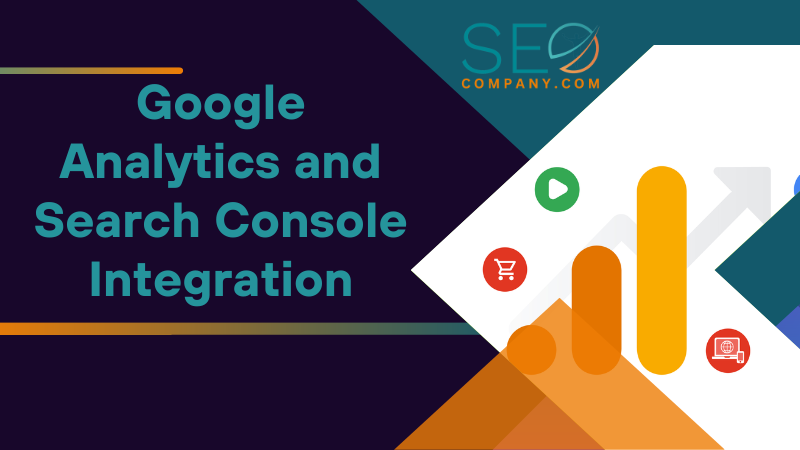
Google Analytics and Search Console Integration
Integrating Google Analytics and Google Search Console with your WordPress site is vital for tracking your website’s performance and identifying areas for improvement. By setting up a Google Search Console account, you can access valuable insights into your site’s traffic, user behavior, and conversion rates through Google Analytics, while Search Console offers information regarding your website’s search engine visibility, average SERP position, and core web vitals score.
By connecting these tools with your WordPress site, you can better understand how your website is performing and make data-driven decisions to improve your SEO efforts. Furthermore, integrating Google Analytics and Search Console can help you identify potential issues, such as broken links or crawling errors, that could negatively impact your site’s search engine rankings.
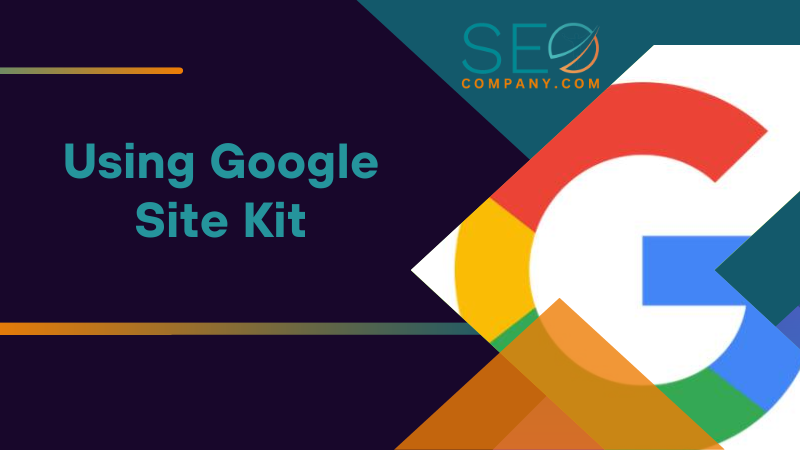
Using Google Site Kit
Google Site Kit is a versatile and user-friendly WordPress plugin that seamlessly integrates various Google tools and services into a single dashboard, offering website owners and administrators a comprehensive view of their site’s performance and traffic data. Developed by Google, Site Kit eliminates the need to navigate between different platforms to access essential insights, making it a time-saving and efficient solution for those seeking to optimize their online presence. The plugin consolidates information from Google Analytics, Google Search Console, Google AdSense, and PageSpeed Insights, providing a centralized hub where users can monitor key metrics such as page views, search queries, click-through rates, and site speed. By presenting this information in a straightforward and accessible manner, Google Site Kit empowers website owners to make informed decisions to enhance their site’s user experience and overall performance.
One of the standout features of Google Site Kit is its emphasis on simplifying the implementation of Google services without requiring technical expertise. Upon installation, the plugin guides users through a streamlined setup process, ensuring smooth integration with their WordPress site. Additionally, Site Kit offers actionable insights and recommendations based on Google’s vast data resources, assisting users in identifying opportunities for improvement. Whether it’s understanding which content resonates most with visitors or optimizing ad revenue, Google Site Kit equips website owners with the tools to refine their strategies. As an open-source tool, it underscores Google’s commitment to enabling digital growth for all, fostering a more accessible and interconnected online ecosystem for WordPress users of varying proficiency levels.
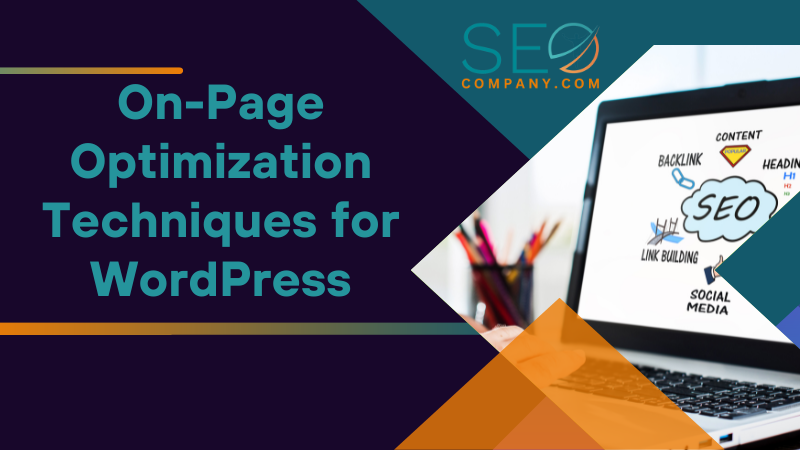
On-Page Optimization Techniques for WordPress
On-page optimization is a crucial aspect of WordPress SEO, as it focuses on improving your website’s content and structure to provide a better user experience and satisfy search intent. In this section, we will discuss various on-page optimization techniques, such as:
- Keyword research and targeting
- Content creation and optimization
- Meta titles and descriptions
- Use of heading tags and content structure
Keyword research and targeting involves researching and selecting the best keywords to target for your website.

Keyword Research and Targeting
Conducting keyword research and targeting relevant terms is essential for attracting the right audience and driving organic traffic to your website. By identifying high-search-volume keywords with low competition, you can optimize your website’s content to rank higher in search engine results and reach your target audience more effectively through improved search results.
Keyword research tools like Semrush and WPBeginner Keyword Generator can help you uncover relevant keywords and phrases to target in your content. Once you’ve identified your target keywords, it’s crucial to incorporate them strategically throughout your website, including in your meta titles, descriptions, headings, and body content.
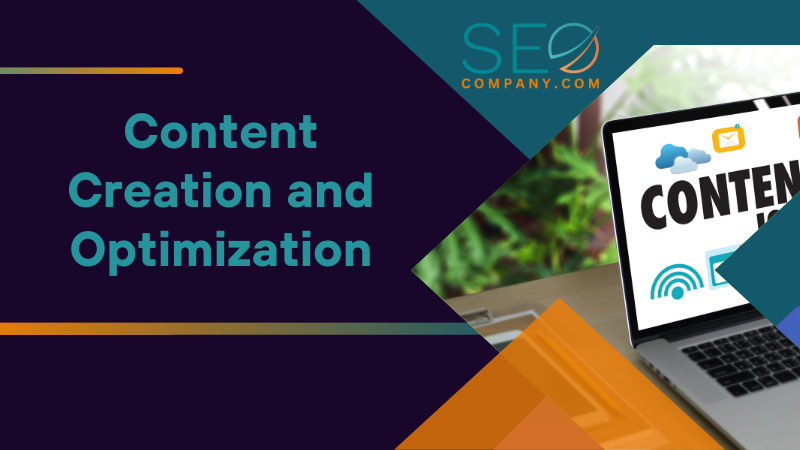
Content Creation and Optimization
Creating high-quality, SEO-friendly content is crucial for engaging users and satisfying search intent. This involves crafting compelling headlines, producing informative and valuable content, and ensuring that your content is well-structured and easy to read. By focusing on the needs of your target audience and addressing their pain points and questions, you can create content that resonates with them and drives organic traffic to your website.
Optimizing your content for search engines involves:
- Strategically incorporating your target keywords
- Using proper heading tags
- Creating internal and external links
- Optimizing your images for better engagement and faster loading times
- Ensuring that your content is free of spelling and grammar errors.

Meta Titles and Descriptions
Crafting compelling meta titles and meta descriptions is essential for enticing users to click on your website in search engine results pages (SERPs). These HTML elements concisely summarize your page’s content and are visible on SERPs. By optimizing your meta titles and meta description with your target keywords, you can improve your website’s click-through rates and increase organic traffic.
Many SEO plugins, such as Yoast SEO and All-in-One SEO Pack, provide features that allow you to optimize your meta titles and descriptions easily. By using these plugins, you can ensure that your website’s content is presented in an appealing manner on search engine results pages, ultimately leading to higher rankings and more organic traffic.

Heading Tags and Content Structure
Proper heading tags and structuring your content are essential for enhancing readability and user experience. Heading tags, such as H1, H2, and H3, help break up your content into easily digestible sections and provide a clear hierarchy for users and search engines. By using heading tags strategically, you can make your content more scannable and easier to understand.
In addition to using heading tags, it’s crucial to structure your content in a way that flows logically and keeps your readers engaged. This can include using short paragraphs, bullet points, and images to break up large blocks of text. By focusing on the readability and structure of your content, you can improve user experience and increase the likelihood that your readers will stay on your website and engage with your content.
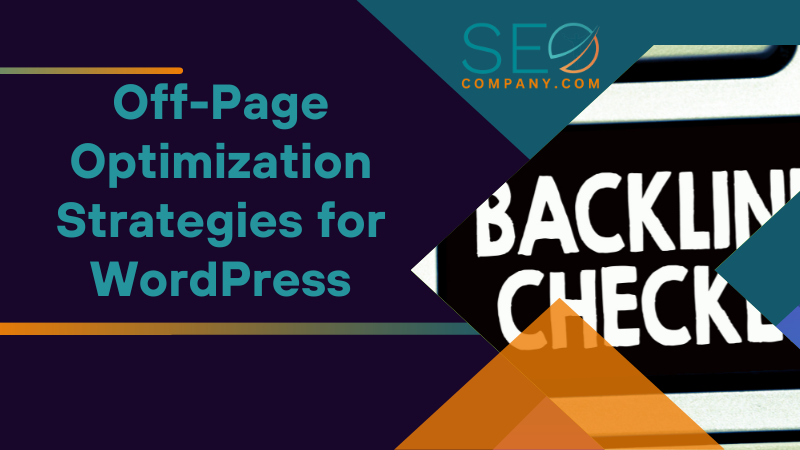
Off-Page Optimization Strategies for WordPress
Off-page optimization plays a significant role in enhancing your WordPress site’s online presence and authority. You can improve your website’s credibility and search engine rankings by employing off-page optimization strategies, such as building high-quality backlinks and utilizing social media marketing.
This section will discuss these off-page optimization strategies in more detail.
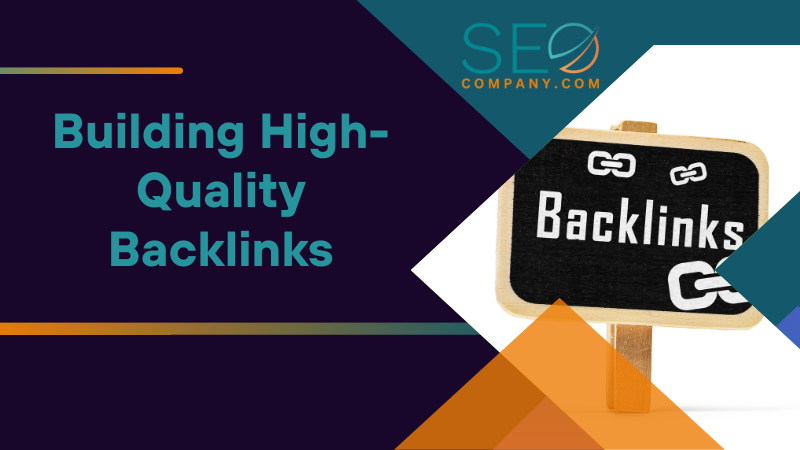
Building High-Quality Backlinks
Building high-quality backlinks from reputable sources is a vital aspect of WordPress SEO, as it helps to improve your website’s credibility and search engine rankings. Backlinks are essentially “votes” from other websites that indicate the value and relevance of your content. By acquiring high-quality backlinks, you can demonstrate to search engines that your website is a trustworthy and authoritative source of information.
Some effective strategies for building high-quality backlinks include guest blogging, participating in online forums and communities, and creating valuable and shareable content. By focusing on these methods, you can develop a strong backlink profile that will boost your website’s authority and search engine rankings.

Social Media Marketing
Social media marketing is another off-page optimization strategy that can significantly impact your WordPress site’s SEO performance. By actively engaging with your audience on social media platforms such as:
You can increase brand awareness, drive website traffic, and improve overall SEO performance.
To optimize your social media marketing efforts, follow these steps:
- Create engaging content that resonates with your target audience.
- Participate in relevant conversations and engage with your audience.
- Share your website’s content across various social media platforms. By following these steps, you can expand your online presence, attract more users to your website, and ultimately boost your search engine rankings.
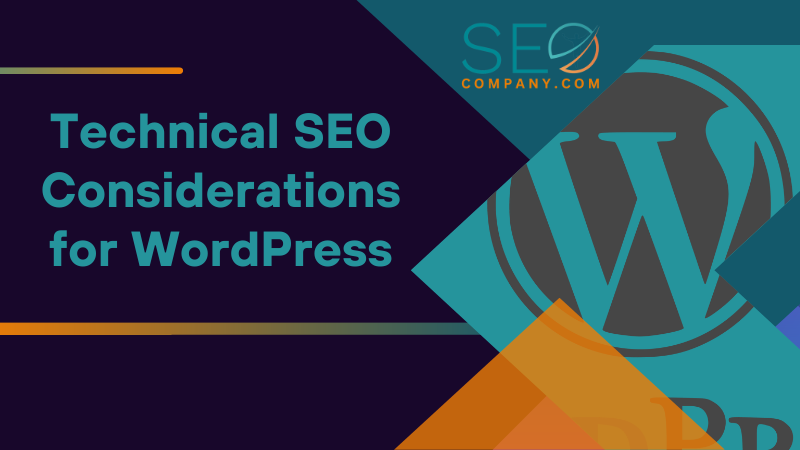
Technical SEO Considerations for WordPress
Addressing technical SEO considerations is crucial to ensure your WordPress site is optimized for search engines and users. This section will discuss technical SEO considerations, such as site speed optimization, mobile responsiveness, and structured data and schema markup implementation.
Site speed optimization is essential for providing a good user experience. It is important to ensure that this happens.
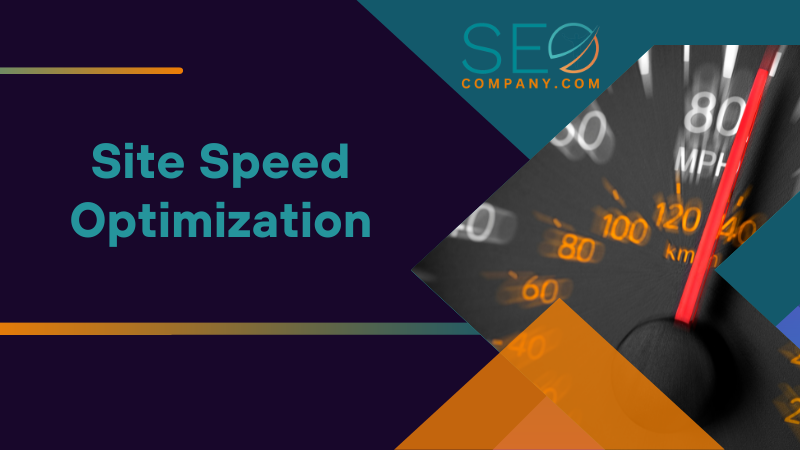
Site Speed Optimization
Optimizing your WordPress site’s speed is essential for enhancing user experience and improving search engine rankings. A slow-loading website can deter users from staying on your site, leading to higher bounce rates and lower search engine rankings. In addition, Google has indicated that site speed is a ranking factor, making optimizing your website’s performance even more critical.
You can employ several strategies to improve your site’s speed, such as implementing a caching plugin, optimizing images, and minimizing the use of plugins and scripts. By focusing on these tactics, you can ensure that your website loads quickly and efficiently, providing a better user experience and increasing your chances of ranking higher in search engine results.

Mobile Responsiveness
With the growing number of mobile users, ensuring that your WordPress site is mobile-responsive is more important than ever. A mobile-responsive website adjusts and displays correctly on various devices, including desktop computers, tablets, and mobile phones. This ensures that your website is functional and visually appealing, regardless of the screen size or device used.
To ensure that your WordPress site is mobile-responsive, it’s essential to choose an SEO-friendly theme that is designed with mobile users in mind. In addition, you should regularly test your website on various devices to identify and fix any issues that may negatively impact the user experience. By focusing on mobile responsiveness, you can cater to the needs of your mobile users and meet Google’s mobile-first indexing requirements.

Structured Data and Schema Markup
Implementing structured data and schema markup is an essential aspect of technical SEO for WordPress sites. Structured data is a form of code that helps search engines better understand your content and can improve your website’s appearance on search engine results pages (SERPs). Using schema markup, you can provide additional information about your content, such as ratings, reviews, or event details, making your SERP listing more appealing and informative.
Many WordPress SEO plugins, such as Yoast SEO and All-in-One SEO Pack, offer features that make it easy to implement structured data and schema markup on your website. By utilizing these plugins, you can:
- Ensure that your website’s content is well-structured
- Easily understood by search engines
- Ultimately leading to higher search engine rankings
- Increased organic traffic.
Summary
In conclusion, WordPress SEO in 2023 remains critical to online success. By understanding the importance of on-page and off-page optimization, configuring your site for SEO success, utilizing essential plugins and tools, and addressing technical SEO considerations, you can unlock the full potential of your WordPress site and drive organic traffic like never before. Start implementing these strategies today and watch your website rank in search engine rankings.
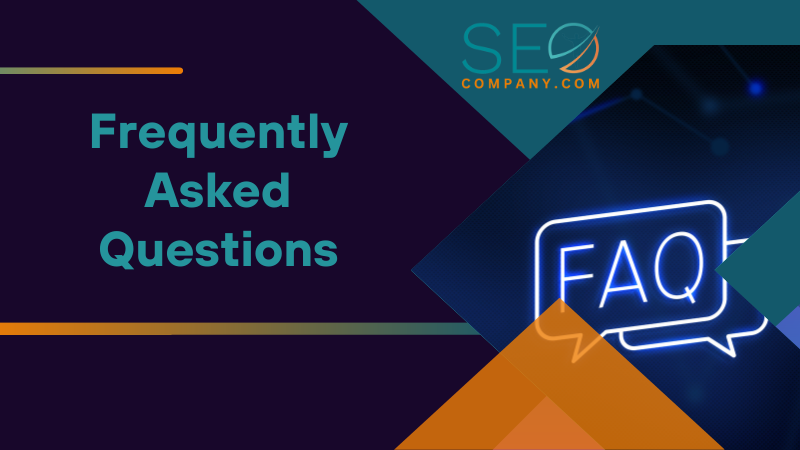
Frequently Asked Questions
Can you do SEO on WordPress?
Yes, you can do SEO on WordPress. It’s the most popular CMS for search engine optimization due to its SEO-friendly structure and management capabilities.
WordPress makes it easy to optimize your website for search engines. It has a range of features that allow you to customize your SEO.
Is there a free SEO for WordPress?
Yoast SEO and SEOPress are two popular, friendly, and free plugins for WordPress that help optimize websites for search engines. Yoast has over 5 million active installations, and SEOPress is completely white-labeled with no ads in its free version.
Both options allow users to see how their pages look in Google Search Engines with a variety of features.
Why is WordPress so good for SEO?
WordPress’ optimized HTML markup and clean code make it easy for search engines to crawl and index content, contributing to higher SEO rankings. This makes it easier for businesses to reach their target audience and increase their visibility online.
What is the difference between on-page and off-page SEO?
On-page SEO involves optimizing a website’s content and structure to improve its search engine rankings, while off-page SEO involves activities that occur outside the website to improve its visibility in search results.
These activities include link building, content marketing, and social media marketing. By engaging in these activities, businesses can increase their visibility in search engine results and drive more organic traffic to their websites.
How can I improve my site’s speed on WordPress?
Optimize your site’s speed on WordPress by implementing a caching plugin, optimizing images, and minimizing the use of plugins and scripts.
Caching plugins can help reduce the amount of time it takes for a page to load. Optimizing images can help reduce the size of the images, which can help speed up the loading time. Minimizing the impact.
